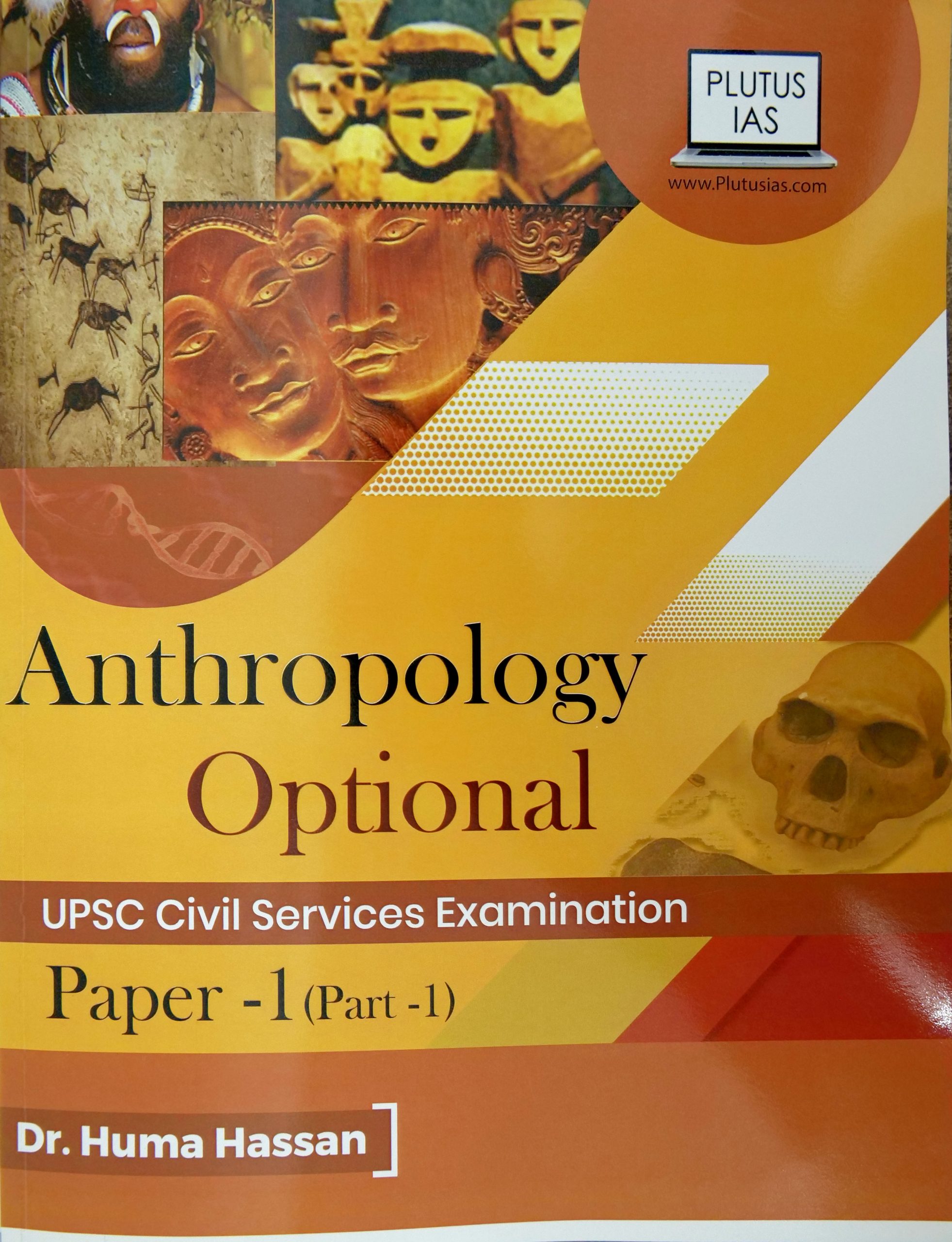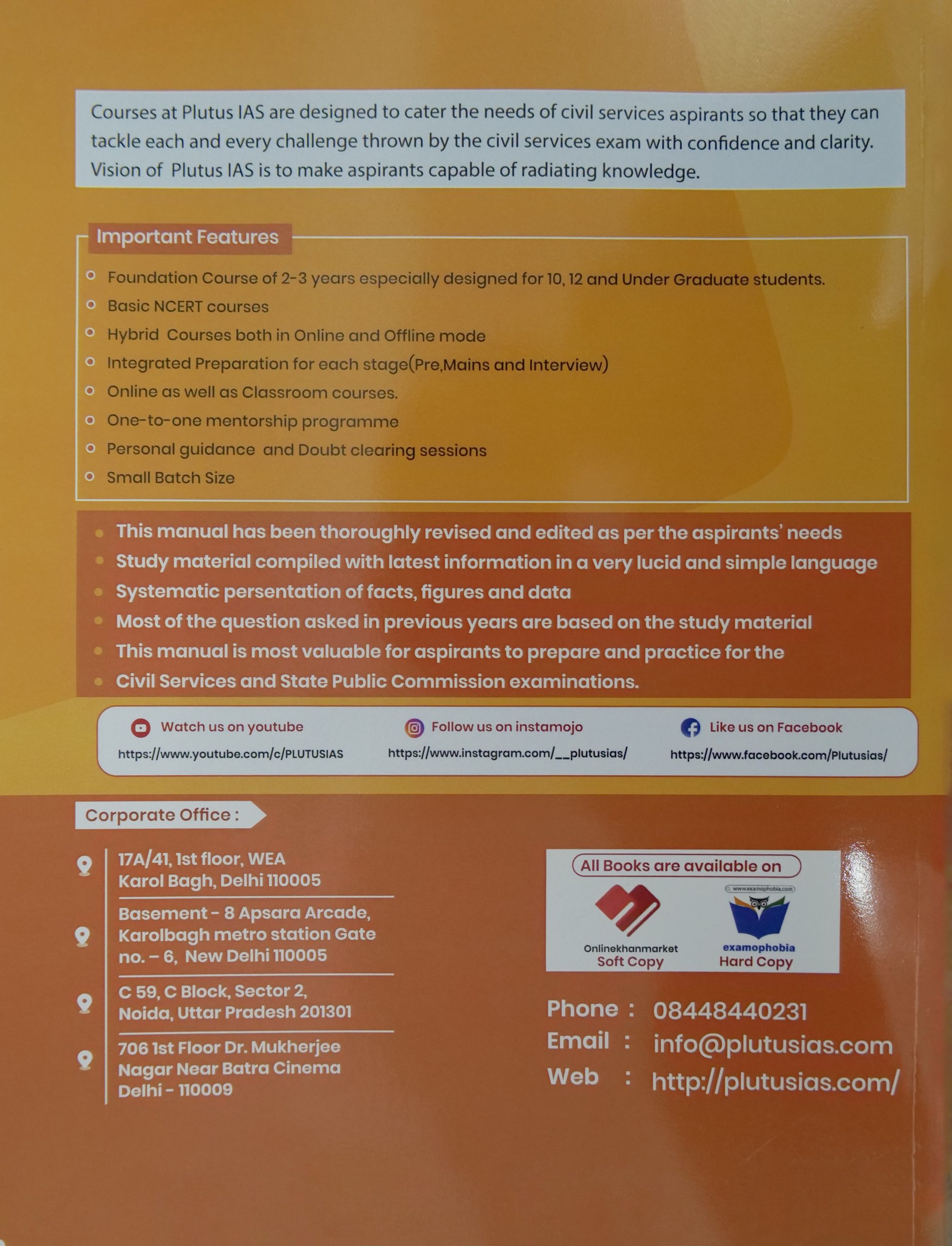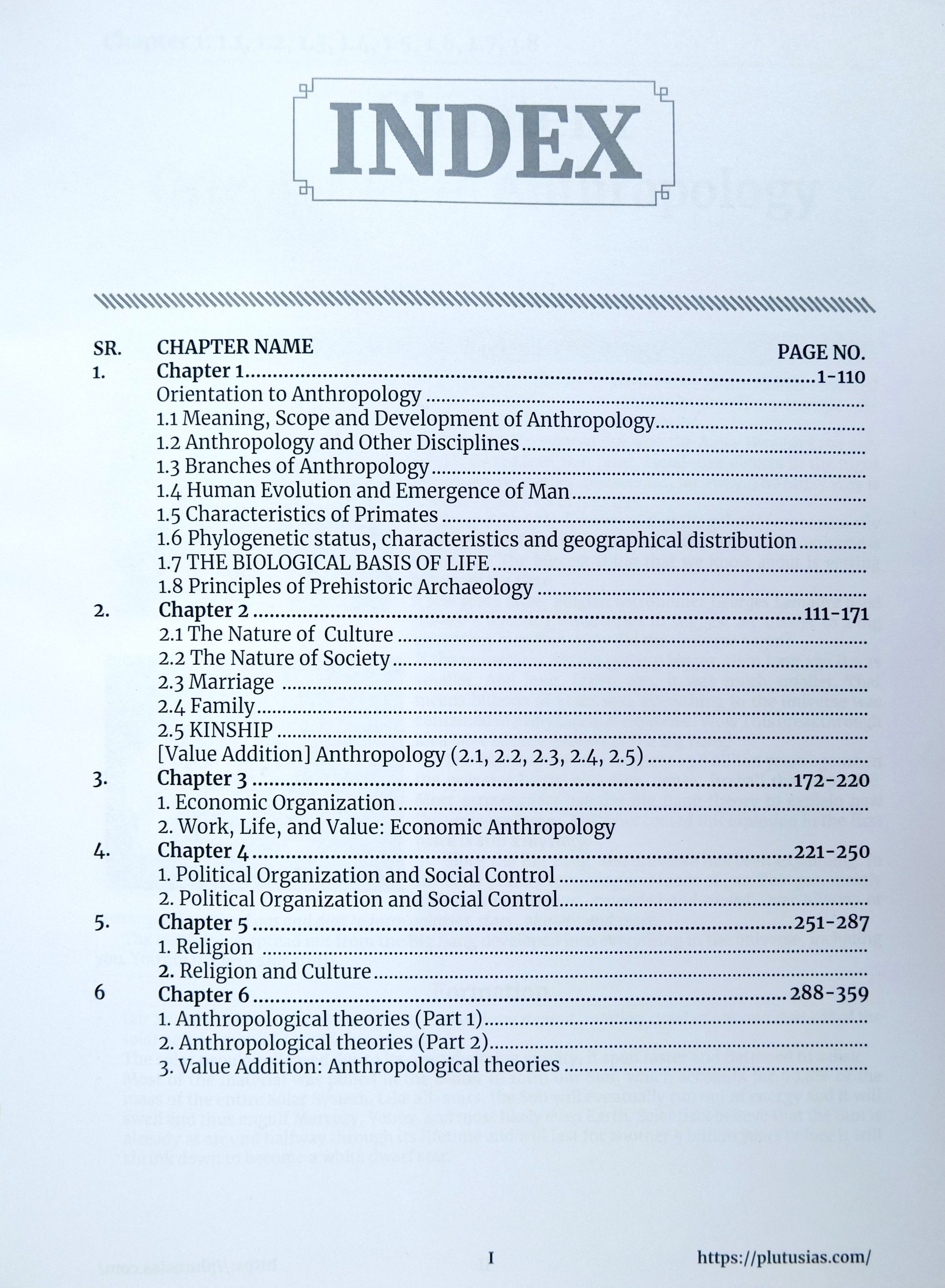Anthropology is one of the most popular optional subjects in the UPSC Civil Services Examination. It is chosen by many aspirants due to its scientific approach, scoring potential, and concise syllabus.
1. Introduction to Anthropology
- Meaning, scope, and development of anthropology
- Relationship with other disciplines (Sociology, History, Political Science, Psychology, etc.)
2. Human Evolution and Biological Basis
- Theories of evolution (Lamarckism, Darwinism, Modern Synthesis)
- Fossil evidence (Australopithecus, Homo habilis, Homo erectus, Neanderthals, Homo sapiens)
- Primatology and comparison with human evolution
3. Human Genetics and Variations
- Principles of Genetics: Mendelian inheritance, Genetic drift, Mutation
- Concepts of race and ethnic groups
- Adaptations (Cold, Heat, High-altitude, etc.)
4. Archaeological Anthropology
- Prehistoric Cultures: Paleolithic, Mesolithic, Neolithic
- Dating methods: Radiocarbon, Potassium-Argon, Dendrochronology
5. Social-Cultural Anthropology
- Marriage, Family, Kinship, and Descent
- Economic Anthropology: Modes of production (Foraging, Horticulture, Pastoralism, Agriculture)
- Religion and Rituals (Sacred vs Profane, Totemism, Shamanism)
6. Research Methods in Anthropology
- Fieldwork tradition in anthropology
- Comparative methods, Genealogical studies





Reviews
There are no reviews yet.